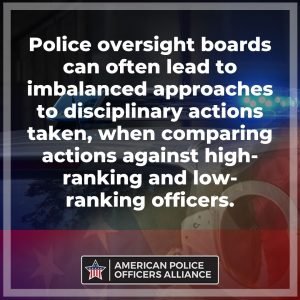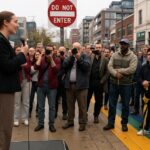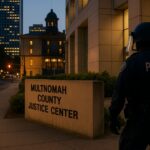Police oversight boards, sometimes referred to as civilian oversight boards, date back to the early 1900’s and were originally intended to avoid undue political pressure on police departments. The original intent of oversight boards was to develop community trust with their local law enforcement. Over time, the exact opposite may be true, as those who make up the oversight boards are often political appointments. In fact, as many of the people appointed to these positions often lack any formal law enforcement experience, the end result has often been just another layer of politics injected into law enforcement. 2020 has been a year filled with political scrutiny of the law enforcement community, especially in metropolitan areas, so naturally, the push for more police oversight boards has increased in this election cycle. The Pacific Coast states of Oregon, Washington, and California each have major cities which just voted to increase authority under oversight boards, or create new ones altogether, on November 3rd.
In 2020, Portland, Oregon, has become synonymous with anarchy. Throughout the summer and into the present moment, the city has become an infamous bed of ANTIFA violence, rioting, and destruction. When riots first broke out over the George Floyd killing this summer, local officials, such as Mayor Ted Wheeler, and even the state’s governor, Kim Brown, did not work to squash the virtual rebellion. Instead, they blamed President Trump and local law enforcement. This came to a head on November 3rd, when citizens in Portland voted to install a Police Oversight Board. On Election Day residents of Portland voted to enact Measure 26-217 into local law. This gave the same City Council that watched as their city burned the authority to: investigate the Portland Police Bureau, impose disciplinary actions on police officers, and recommend policing “practices and policy.” The measure passed with overwhelming support, receiving 81.58% of the vote.

King County, Washington, is home to the city of Seattle and another hotspot for Leftist insurrection in America. In June of this year, six blocks in Seattle’s Capitol Hill District were overrun by Leftist protestors who were allowed to chase police out of the area, commit crime, and rule the Capitol Hill District as a breakaway colony in the middle of an American city. The zone was dubbed CHOP (Capitol Hill Occupation Protest). This lasted for weeks. Stores were looted, people were killed, and the Mayor of Seattle, Jenny Durkin, tacitly supported the movement. On Election Day, the people of King County voted in support of a series of measures which essentially usurped power of county Law Enforcement and awarded it to local politicians all the same. King County Charter Amendment 4 awarded the Office of Law Enforcement Oversight power to subpoena witnesses, documents, and other relevant material in investigation of law enforcement officers. This received 81.51% of the vote. King County Charter Amendment 5 was passed which ended the democratic election of County Sheriff, and instead, transformed it into a political appointment. This received 55.6% of the vote. King County Charter Amendment 6 stipulated that the duties of County Sheriff would be determined by the County Council political body, instead of being aligned with, and determined by, state law. This measure passed with 62.05% of the vote. Through various measures on November 3rd, the power of law enforcement in King County has been concentrated solely into the hands of politicians who have proven to put an agenda before the law.
Finally, San Diego, California passed a ballot measure which placed another layer of bureaucracy into the law enforcement accountability structure in the city. Until November 3rd, the city of San Diego had what was referred to as the Community Review Board on Police Practices. “The current CRB has to rely on outside investigations for information and gets its legal counsel from the city attorney, who represents the police department in lawsuits,” reported CBS 8. Critics say these arrangements equate to police investigating themselves. Measure B in this year’s election dissolved this cooperative review board and sought to set up a unilateral and independent investigative authority outside of the mayor, or police department, made up entirely of City Council appointments.
In each of these three states, it is not enough to simply state that police oversight boards do not lead to the advertised objectives. Police oversight boards can often lead to imbalanced approaches to disciplinary actions taken, when comparing actions against high-ranking and low-ranking officers. But most importantly in our current political climate, the members who constitute these boards are typically appointed, therefore by default, leaving the appointment to the politicization of the board itself. Will the board appointed in a city like Portland be an impartial arbiter of justice, when the very politicians creating it won’t stop rioters from destroying their city? Or in Seattle? Will King County Council people act objectively in the investigation of law enforcement that has been under attack in their largest city? The politicization of these oversight boards is a fundamental flaw in their design, and in our current anti-police politics in the areas they are being appointed, the flaw is a dangerous one.









